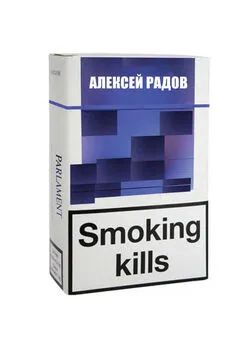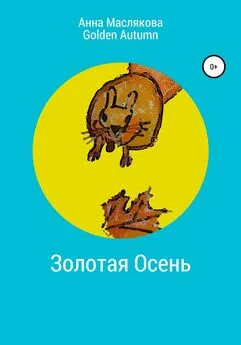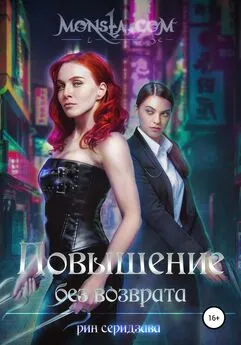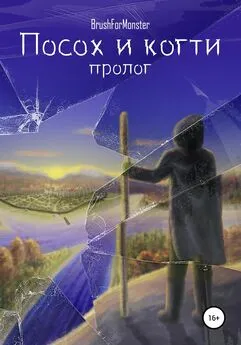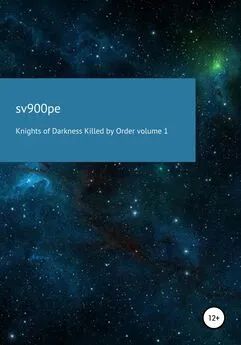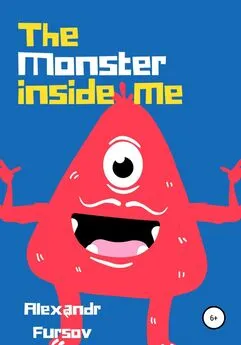Mons Kallentoft - Autumn Killing
- Название:Autumn Killing
- Автор:
- Жанр:
- Издательство:неизвестно
- Год:неизвестен
- ISBN:нет данных
- Рейтинг:
- Избранное:Добавить в избранное
-
Отзывы:
-
Ваша оценка:
Mons Kallentoft - Autumn Killing краткое содержание
Autumn Killing - читать онлайн бесплатно полную версию (весь текст целиком)
Интервал:
Закладка:
PART 3
Ostergotland, October
The film doesn’t stop just because I want it to.
It’s endless, and the images become more and more blurred, indistinct, grey, as their edges smoulder.
No matter what happens, they won’t catch me.
I shall defend myself.
I shall breathe.
I won’t hold back any of the rage. I shall let the young snakes, the last of them, leave my body.
I have to admit that it felt good this time. It wasn’t a sudden outburst like the first time. I knew what I was going to do. And there were a thousand reasons. I saw your face in his, Father, I saw all the boys in the schoolyard in his face. I undressed him like they undressed me, I pretended I was laying him on an altar of young snakes.
It made me calm, the violence. Happy. And utterly desperate.
The darkness is getting thicker now, the raindrops are balls of lead crashing onto the ground, onto the people.
It’s my turn now. I’m the most powerful.
No one will ever again be able to turn away from me. And who really needs those pigs with their traditions, names, the sense of superiority they acquire at birth. The pictures flicker, black and white with pale yellow numbers. The story of me, the one firing out of the projector, is approaching its end now.
But I am still here.
Father embraces me again in the pictures, and he’s thin, and Mum won’t survive the cancer for much longer. Come to me, son, stand still so I can hit you.
I have a friend.
It’s possible to escape loneliness, captivity. The strangers and the fear, all the things that are unbearable. Life can be a blue, mirror-calm sea.
Money.
Everything costs.
Has a price.
The boy sitting in the garden in the pictures on the white projector-screen doesn’t know that yet, but he has a sense of it.
Money. It should have been my turn.
Father, you have no money. You never have had. But why shouldn’t I? Your bitterness isn’t mine, and maybe we could have done something together, something good.
But things went the way they went.
A rented flat, a terraced house, feeble little abodes.
I am running alone through the garden in the pictures. The devil take anyone who creates loneliness, and the fear that comes with it.
The devil take them.
Boys. Living and dead, men with skins to try to fit into.
Then the reel ends. The projector flashes white. Neither the boy nor the man is visible any longer.
Where should I go now? I’m scared and alone, a person who doesn’t exist in any pictures. All that is left is the feeling of young snakes crawling beneath my skin.
49
Friday, 31 October
The solicitor, Johan Stekanger, speeds up and puts the windscreen wipers on full, and they flap like hens with their necks wrung over the windscreen in front of him.
The Jaguar responds to his commands and they glide past the bus in plenty of time to avoid a sad black Volvo estate.
The heated seat is warming his arse agreeably. It’s particularly rough outside at this time of the morning. The car still smells new and fresh, of chemicals, and the grey interior undoubtedly matches the season.
The art on the walls of the castle, every wall covered by pictures that don’t seem to be of anything at all, but which he understands are worth a great deal.
Hence the idiot in the tweed suit in the seat next to him, a Paul Boglover, sorry, Boglov, an expert in contemporary art, down from Stockholm to document and value Jerry Petersson’s art collection.
Boglov is presumably hoping he’ll get the chance to sell the rubbish, Johan Stekanger thinks as they pull up in front of the castle, beyond the bridge over the now empty moat.
He hasn’t said much.
Maybe he’s picked up on my dislike of him, Johan Stekanger wonders. That was actually one of the reasons why he moved back to Linkoping after studying in Stockholm. The people here were more homogenous, and you hardly ever saw any queers on the city’s well-kept streets. He’s always had trouble with queers.
The clock on the dashboard says 10.12.
An estate inventory of the most grandiose variety, the largest he’s ever dealt with. There’ll be a hefty fee at the end of it, that much is beyond question.
So it was worth putting up with an art-loving queer from the queer metropolis.
He can’t stand me, Paul Boglov thinks, as the ill-mannered solicitor in the cheap green suit and the blond hair hanging down over his collar taps the code into the alarm panel beside the main door of the castle.
But why should I care what he thinks?
Backwoods bigot.
‘Well, welcome to the splendour of Skogsa.’
‘Bloody hell!’
The words are out of Paul Boglov’s mouth before he can stop them, and when he finally manages to tear his eyes from the enormous painting on the wall of the entrance hall, he sees the philistine solicitor beside him grinning.
‘Really? Valuable?’
‘It’s a Cecilia Edefalk. From her most famous series.’
‘Doesn’t look like much if you ask me. A man rubbing suncream on a woman’s back. I mean, he could have rubbed it onto her front!’
I’m not going to respond to that, Paul Boglov thinks.
Instead he takes out his camera, photographs the painting, and makes some notes in his little black book.
‘There’s stuff like that in almost every room.’
Paul Boglov goes from room to room, taking photographs, doing calculations, and reacting with childish surprise, and with each room the feeling of making a great discovery grows within him. Was this what it felt like when they discovered the Terracotta Army in China?
Mamma Andersson, Annika von Hausswolff, Bjarne Melgaard, Torsten Andersson, a fine Maria Meisenberger, Martin Wickstrom, Clay Ketter, Ulf Rollof, a Tony Oursler head with the lights switched off.
Impeccable taste. Contemporary. Must have been bought during the last decade.
Did Jerry Petersson choose the works himself?
A feeling for quality. That’s something you’re born with.
And the philistine.
His idiotic comments.
‘Looks like an ordinary photograph if you ask me.’
About the little Meisenberger.
‘A bit of glass with holes in.’
About the Ulf Rollof above the bed in what must have been Jerry Petersson’s master bedroom.
Art worth thirty million kronor. At least.
Almost all the rooms have been checked when Paul Boglov gets a glass of water in the kitchen and reads through his notes, checking the pictures of the works in his camera.
It’s all in the eye.
Petersson, or someone else, must have had a perfect eye for art.
You’re moving through my rooms .
You gawping, him mocking.
You don’t know what you’re about to find, what I’ve just seen.
There’s a reason I was drawn to art, that much is true.
But I’m not going to talk about that now, Malin Fors will have to guess her way to it.
I was overwhelmed by art. I got so much more out of it than I expected. At first I couldn’t afford it, but it didn’t take long.
In my pictures I saw, I see, all the feelings I don’t have names for. Just look at the perforated glass above my bed. At the beauty and pain in it. Or at Melgaard’s fist-fucking monkeys, their poorly disguised terror at what they are, what they have become, the love they left behind somewhere.
Or at Maria Meisenberger’s empty human shadows. Like sins you can never leave behind.
‘There’s a chapel as well,’ the philistine says. ‘It’s got some Jesus pictures in gold. Do you want to see them?’
Icons, Paul Boglov thinks. He doesn’t even know they’re called icons, but he can’t mean anything else, can he?
‘Where’s the chapel?’
‘Behind the castle, down by the forest.’
Paul Boglov puts his glass down on the draining board.
Outside the Lord of Rain is in full command, the day dark even though it is only just midday.
They walk quickly around the castle. The chapel is located alone and abandoned on the edge of a dense forest of fir trees.
A key in the philistine’s hand.
Icons, Paul Boglov thinks. I wonder if Jerry Petersson had as much taste when it came to them?
‘Looks like it’s unlocked,’ the philistine says.
And they open the doors to the chapel.
They glide open slowly, creaking.
A dull light through glassless openings.
And they both let out an endless scream when they see what’s lying there naked, almost draped across the raised slabs marking the site of the Fagelsjo family vault.
50
Death has no smell here. The stench of decay that meets Malin doesn’t come from the corpse, but from the forest surrounding the chapel.
The ground is waterlogged, but doesn’t seem able to flood.
Fredrik Fagelsjo’s body is naked.
Malin knows it is, even though it’s already lying on a trolley in a black bag designed for the purpose: transporting and concealing corpses.
She’s standing at the entrance to the Skogsa chapel, trying to escape the rain that the wind is driving towards her, looking at the gilded pictures of Christ on the walls, the haloes around the head of the Son of God, a halo that no one yet living seems to possess this autumn.
The vultures are being kept at a distance. She could see the expectation in their eyes as she walked past them. Their little Blackberries ready for notes, the starved cameras, their instincts aroused, finally something has happened again. Daniel isn’t there. Perhaps he’s on his way.
Sven Sjoman and Zeke beside her, silent and focused, thoughtful.
Fredrik Fagelsjo.
Murdered. Like a sacrifice on the family vault.
An autumn sacrifice.
But for what? And by whom?
The three detectives want to take the connection to Jerry Petersson’s murder for granted, but know that they can’t. No stab wounds this time, but a clear message nonetheless: a naked body on a grave.
They have to keep all their options open in the investigation, there’s no guarantee that the two murders are linked just because they almost share a crime scene, or because the victims have a shared history. Who knows what meandering pathways violence takes? Malin thinks. Dead ends, dark and lonely. The methods are clearly different, but it’s a myth that a murderer always kills in the same way.
The solicitor and the art expert.
They were in quite a state when Malin, Sven and Zeke arrived an hour or so ago, but they had had the sense not to go too far inside the chapel, before pulling back cautiously from the immediate vicinity.
The reason why they were there was obvious. And they hadn’t seen or heard anything.
No reason to detain them.
Karin Johannison and her two male colleagues from the National Forensics Lab are searching the scene, looking for fingerprints, picking up things invisible to the naked eye and putting them in plastic bags.
Karin, on the subject of Fredrik Fagelsjo once his body had been put inside its black plastic bag: ‘He appears to have died from a blow to the head. The wound looks like it could have been inflicted by a hammer. It struck him cleanly, so it isn’t possible to say if the perpetrator is right- or left-handed. No other obvious signs on the body, no violence against the genitals as far as I could see from a quick look.’
‘Was he murdered here or moved here?’ Malin asked.
‘In all likelihood he was moved here. There are definite signs of blood by the entrance. Even if his clothes are missing, I think he was undressed here. The fibres we’ve just found on the floor look like the ones I found on the body when I first checked it.’
Читать дальшеИнтервал:
Закладка:
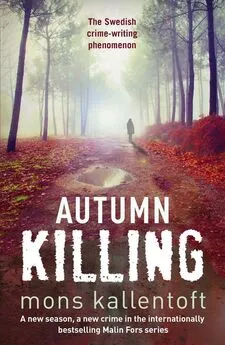

![Альфред Ван Вогт - Чудовище / The Monster [= Пятый вид: Загадочное чудовище; Воскресшее чудовище; Возрождение]](/books/155614/alfred-van-vogt-chudoviche-the-monster-pyatyj-v.webp)
